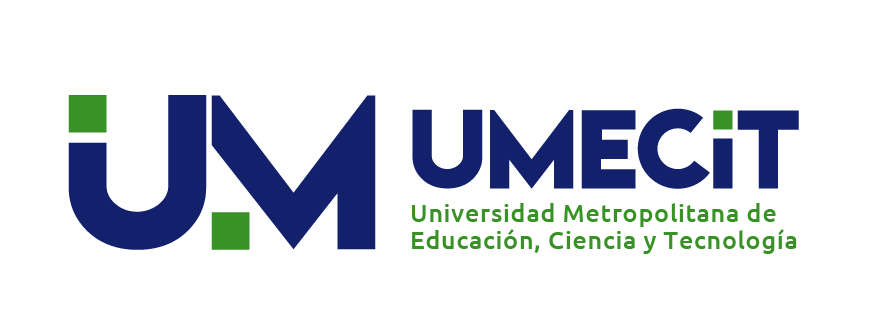
Bachelor's Degree in Nursing
Duration
Modality
Faculty
-
APPROVAL RESOLUTION
DEGREE IN NURSING
Res.: CTDA-70 2024 – IN-PERSON - Date: 29/05/2024
Career Description
Nursing is one of the areas of health sciences with high labor demand and growth possibilities, which makes it one of the professions with great development potential.
Nursing is a noble and essential profession that focuses on providing quality care and attention to patients of all ages in various health situations. Nurses are fundamental pillars of the health system, playing a vital role in promoting, preventing and rehabilitating people's health.
The nursing career at UMECIT is more than an academic education; it is an opportunity to make a difference and become an agent of positive change in the lives of others. Our pedagogical approach seeks to train highly qualified professionals with solid clinical skills, an empathetic mindset, and an innate passion for caring for others.
The Nursing career contributes to the solution of the social and health problems existing in this country, resulting in benefits for the population, all through management that contributes to the continuous improvement of the Panamanian population.
Nursing graduates can work in a variety of areas, including patient care, education, research, administration and management of health services, among which we can highlight the following:
- Nursing professionals will be able to work in various areas of health care at the primary, secondary and tertiary levels, both public and private.
- Clinical nursing, which includes the practice of nursing in hospitals, clinics and other health care centers.
- Community nursing involves the development of activities in communities, providing care to patients in their homes, schools, senior care centers, among others.
- Nursing education consists of providing care through education at different levels of training (schools, universities, educational centers, among others).
- Nursing research involves participation in and development of research projects that address a variety of health-related topics.
Applicants for the Bachelor's Degree in Nursing, offered by the Metropolitan University of Education, Science and Technology -UMECIT-, must meet the following requirements:
- Submit the respective admission exam and be accepted.
- Submit a bachelor's degree in science or its equivalent
- Bachelor of Science credits or grades or their equivalent
- Photocopy of identity card (birth certificate or passport in the case of foreigners).
- Take and pass a psychological test.
- A current passport size photo.
- Fill out the admission form in electronic format with the promoter.
- Identity document, ID card or passport in the case of foreigners and residing in Panama during their studies. (In case the student is a minor, the juvenile ID card and the identity document of their guardian).
If you are a foreigner, the aforementioned documents must be apostilled by the Ministry of Foreign Affairs of your respective country. In the event that the country does not have a consulate, it must be processed before the official authorities that validate it.
If the originals of the above documents are not available, a certificate or its equivalent issued by a national or foreign school legally recognized by the competent authority must be provided, stating: a) Name of the institution. b) Name and identification number of the graduate. c) Name of the high school or its equivalent. d) Degree awarded. e) Date of issue of the degree. f) Credits or grades from high school or its equivalent. If the student is a foreign student, these documents must have an apostille stamp or be legalized through diplomatic channels and their translation into Spanish.
- Reading comprehension skills.
- Have good physical and mental health.
- Critical thinking capacity, for the analysis and solution of problems, that adjust to the needs and demands of the discipline.
- Ease for interpersonal relationships.
- Emotional domain in front of the approach of real life situations.
- Basic knowledge of computers as a technological tool that will allow the incorporation of exchange activities outside the classroom.
- Provision for personal knowledge and human development.
- Sensitivity to the psychosocial needs of others.
Given the profile of the “NEO CYBERHUMANIST” curricular educational model of the University:
- Permanence at the University will depend, solely and exclusively on the student, on their motivation, ability and vision to obtain the chosen academic degree.
- Respect and comply with the regulations established by the statutes that regulate the relationships between the Metropolitan University of Education, Science and Technology and the students of the Institution, taking into account principles and values of the human being.
- Keep payments up to date.
- Attend at least 80% of the meetings scheduled in face-to-face mode. In case of prolonged absence, you must duly present the argumentation that justifies it.
- The student is responsible for the construction of their knowledge, willingness to work and collaborative learning, study in a team on their own, investigate, be self-taught and contribute to self-knowledge and self-motivation.
- For those students who lose academic continuity (i.e. defer or withdraw) and wish to continue their studies or did not fulfill their degree requirement, they must apply for reinstatement to the current program approved by CTDA and must comply with the validation and homologation regulations.
- The term of stay at the University will be in accordance with the number of quarters that make up the academic program and compliance with degree requirements.
- In cases of force majeure or unforeseeable circumstances, the student must comply with contingency plans or any documents that serve as such.
Index
- Maintain a cumulative academic index of not less than one (1.0) on a scale of one to three (1 to 3).
Note
- In order to pass each subject, the participant must obtain a minimum grade of 71 on a scale of 1 to 100, which is equivalent to item C.
- Take and pass all the subjects of the study plan with a minimum grade of 71 points equivalent to a C.
- Maintain a cumulative academic index of not less than one (1.0) on a scale of one to three (1 to 3).
- Take a certification exam of a second language recognized by UNESCO, in accordance with internal regulations.
- Be at peace and safe with the institution (financial, academic and library).
- Submit and pass the final degree project in accordance with the regulations available in the institution for this purpose.
- Satisfactorily complete the practices set out in the study plan.
- Complete the 120 hours of community social work, in accordance with the parameters defined by the institution.
Nursing professionals will work in the health field with leadership and social responsibility. Based on solid scientific and disciplinary foundations, they will identify and resolve, in an ethical, humanistic, trans-professional and innovative way, the challenges present in health at a global and local level; from an individual and population perspective, taking into account the stages of the life course, its dimensions and recognizing the context and present interactions, which allow guiding the work of the profession, to impact on the improvement of health, through the training received.
According to the profile, the nursing professional will have a wide field of work in the health area in the intramural and extramural care setting, promoting primary health care as a strategy to achieve equity in health and coverage, as well as in administrative, educational, and research areas and will be a key person in participation and decision-making at a political and social level aimed at achieving health goals, visualizing themselves as a fundamental actor in health systems.
Knowing:
- Promote life through the understanding, deepening and transformation of concepts, processes, theories, models and paradigms, specific to disciplinary knowledge, required to guide health care in individuals and the population, supported by innovation, technological, ethical, differential processes, in line with the sociocultural, political, and epidemiological context that intervenes in health processes at a national and global level.
- Continuously understand the needs of individuals throughout their life course in terms of health, illness and end-of-life processes, as well as the different interaction processes that impact the health of populations, in order to guide the nursing care process in a comprehensive manner, guided by ongoing training and updating to respond to global needs.
- View leadership as the axis for developing discipline, accurately influencing the actions of team members, allowing for the effectiveness of individual and population health care, mediated by resource management and decision-making that promotes quality nursing care.
- Promote among professionals the updating and deepening of knowledge of the discipline, with critical and constructive awareness, which contributes to personal and social development, focusing efforts on strengthening primary health care.
Doing
- Guarantee nursing care with quality, responsibility, in a comprehensive, innovative, continuous manner, through health care from the human dimension and required in the course of the individual's life, involving the analysis of the interaction of different processes present in the contexts of the health of the population, to respond to needs at a local and global level.
- Practicing the profession with social and environmental responsibility, a human and ethical sense in all dimensions of the human being, respecting their beliefs and culture, to provide comprehensive care and guarantee a differential approach.
- Build and strengthen knowledge through research, as well as support in community services, with an emphasis on health promotion, promoting innovative and technological forms within the framework of primary health care, to provide care to communities, individuals and families, motivating them to stay healthy through self-care.
Living:
- Continuously strengthen communication, critical thinking, leadership and governance skills to respond to constant challenges in a comprehensive manner and maintain professional participation in decision-making at all levels, based on teamwork, establishing networks that guarantee continuity and quality of care, based on the health of the individual and population.
- Promote and exercise health care and end-of-life support as the main action of the nursing profession, which is highly humanistic, since it guides its actions with a vocation to provide care based on the vulnerability of others, for which it is essential to have skills that demonstrate ethics, values, and the moral commitment to be an excellent professional.
Being:
- Continuously develop and strengthen leadership skills, demonstrating the ability to work as a team, as well as interprofessional and trans-professional, to achieve improved health of the population.
- Recognize oneself as the person who promotes life in human beings and populations, through education, emotional support, advice on self-care of health and guidance in the processes that affect it, promoting human warmth.
Undertaking
- Position the profession for primary health care, as the global strategy for achieving equity and health coverage, generating networks between institutions, professions, and other actors in the health system, in favor of individual and population health.
- Plan, organize, coordinate, direct, evaluate and expand comprehensive health programs and projects that respond to the needs of individuals and the population, with evidence of health improvement, measurement and monitoring to meet health goals.
Bachelor of Nursing
Contact us and start now
Panama Headquarters Building A Founders
Phone: (+507) 264-9908 Founders Main Building: Transisthmian, Via Simón Bolívar


